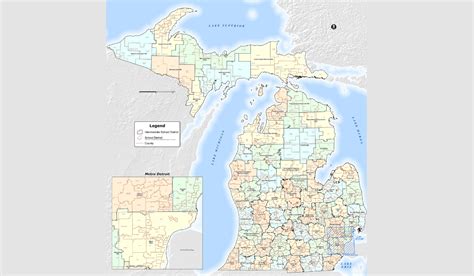
CTE Millages: Mixed Results in November 2025 Elections
CTE Funding Takes Center Stage in Local Elections
November's 2025 general elections delivered decisive verdicts on multiple fronts, with Career and Technical Education (CTE) millages emerging as pivotal issues shaping educational futures across Michigan communities. While some regions embraced expanded vocational opportunities, others expressed hesitation, reflecting complex priorities for school funding and student development.
Divided Fates: Otsego vs. Washtenaw CTE Proposals
The Cheboygan-Otsego-Presque Isle Educational Service District (COPESD) sought voter approval for a six-year, one-mill levy to fund cross-district CTE programs covering ten school districts. The proposal aimed to enhance student access to specialized training like healthcare technology, skilled trades, and manufacturing certifications. However, unofficial results revealed a narrow defeat: 6,947 no votes opposed the measure versus 5,737 yes votes. Otsego County's split showed 1,928 in favor but 2,468 against, with neighboring Cheboygan and Presque Isle counties adding significant opposition.
In stark contrast, Washtenaw Intermediate School District's (WISD) CTE millage secured a clear victory with 23,972 yes votes against 20,246 no votes. This approval ensures funding for K-12 technical programs spanning robotics, automotive technology, and culinary arts across Washtenaw County's public schools. 
Broader Election Landscape: Council Shifts and Local Measures
CTE debates unfolded alongside numerous local contests:
- Gaylord City Council: Three newcomers—Vic Ouellette (382 votes), Hannah Techel (355), and Ryan Kennedy (316)—defeated incumbents, signaling potential policy shifts.
- Washtenaw Communities: Incumbents largely retained seats in Chelsea (Mayor Kate Henson) and Saline (Council members Jim Dell'Orco, Tramane Halsch, Jenn Harmount). Milan elected Mayor Ed Kolar to an extended term.
- Other Millages: Chelsea's fire authority proposal passed (3,204 yes vs. 1,610 no), while Milan's library millage succeeded with 1,130 yes votes.
The Stakes of CTE Expansion
Both COPESD and WISD proposals underscored CTE's role in bridging skill gaps. Proponents argued they would address regional workforce shortages—particularly in trades and healthcare—by offering industry-aligned certifications. Opponents raised concerns about property tax burdens during economic uncertainty.
"CTE isn't just about shop class anymore," noted education analyst Dr. Mark Reynolds. "It's about preparing students for high-demand STEM careers. The vote splits reveal how communities weigh immediate costs against long-term economic benefits." 
What's Next for CTE Funding?
The COPESD defeat may prompt revised proposals with scaled-down budgets or broader community outreach. Certified results due November 18 could trigger recounts in tight races like Monroe County's District 2 commission seat. Meanwhile, WISD will immediately launch CTE expansion planning, with programs expected to debut by fall 2026.
As Michigan's economy evolves, these local decisions will shape whether students gain direct pathways to family-sustaining careers or face widening skill divides. For now, the November elections highlight one clear trend: CTE is no longer a niche priority but a central battleground for educational equity.
"Voters sent a message: CTE matters, but funding models must balance innovation with affordability."
Results remain unofficial until certified by county Boards of Canvassers.
Share this article
Alex Green
Lifestyle blogger covering modern living, personal growth, and cultural trends.